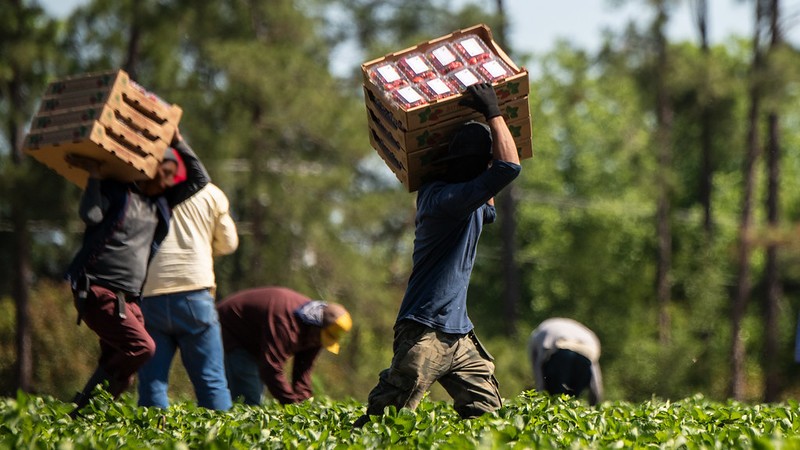In Cuenca, east-central Spain, officers found 40 people crammed in a warehouse in unsanitary conditions. The victims were made to work in the agricultural sectors. The police statement did not specify the nationality of the workers, nor did it reveal what they were actually doing.
The workers were forced to spend their nights in one room without proper furniture, use a prefabricated and unclean bathroom that did not offer them basic hygiene.
Five people were arrested, with one in Albacete and four in Cuenca.
Simultaneously, officers in Malaga, in the south of the country, discovered a network that pretended to be helping immigrants but, in fact, recruited workers for exploitation in the construction industry.
These victims were forced to eat and sleep inside vehicles and were made to work in shifts that sometimes were longer than 24 hours, either as laborers or security guards on construction sites.
The investigation ultimately led to the arrest of 17 suspects in Malaga and one in Madrid. Officers seized 30,000 euros (US$ 32,897.85) in cash, a high-end vehicle, several cell phones, and documentation related to the investigation during four entries and searches.
Additionally, 95,000 euros (US$ 104,177), two houses, and 27 vehicles were blocked.
According to Anti-Slavery International, when immigration laws fail to facilitate legal migration, individuals are often compelled to take irregular routes, which may involve relying on smugglers or traffickers, thereby increasing their vulnerability to modern slavery.
In most regions worldwide, migrants comprise a considerable proportion of detected human trafficking victims, and migrant workers are at a significantly greater risk of forced labor.
While there are multiple factors that contribute to migrants' vulnerability to forced labor and human trafficking, the risk becomes more pronounced when migration is unsafe, disorganized, or irregular and when destination countries lack laws that protect migrant workers.
As stated by the Global Slavery Index 2023, forced labor may be most common in low-income countries, but there is a strong connection to the demand for goods from higher-income countries.
The supply chains involved in the production and movement of products between countries, from sourcing raw materials to manufacturing, packaging, and shipping, are often complicated and obscure, with forced labor being prevalent in many of them.
In 2021, G20 countries imported $468 billion worth of goods at risk of being linked to modern slavery.


